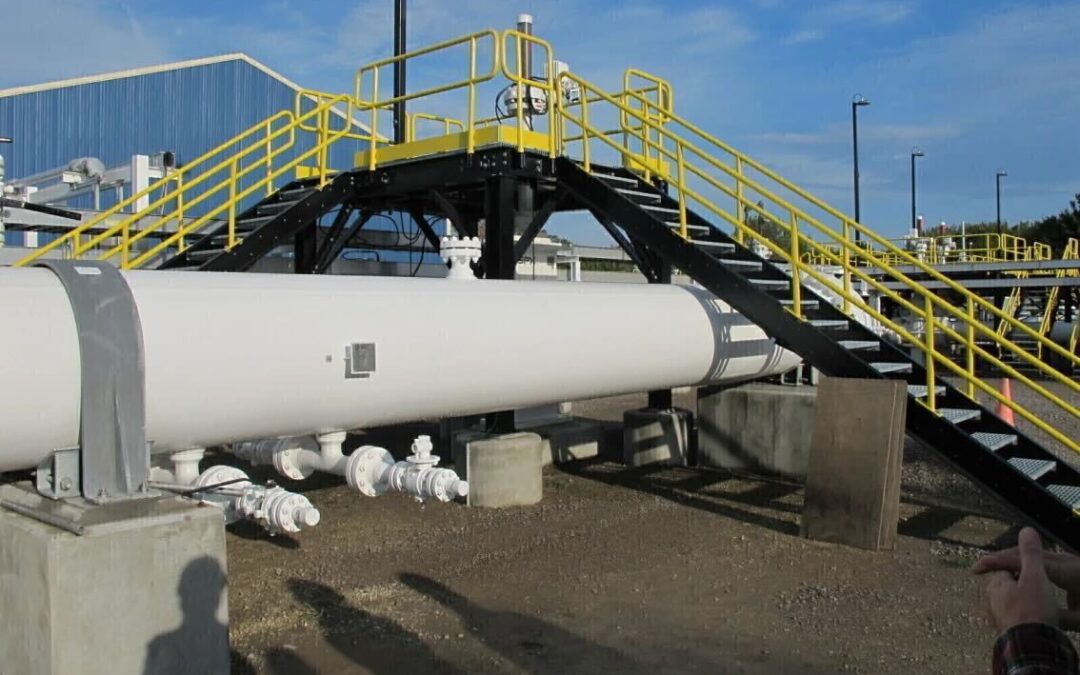
#image_title
Administrative Rules Committee voted along party lines to remove enforcement sections to appease industry.
A bipartisan agreement to regulate the testing of firefighting foam to prevent certain chemicals from entering water systems has been essentially killed by Republicans who control a key legislative committee by voting to remove rules opposed by industry lobbyists.
On Friday, members of the Joint Committee for the Review of Administrative Rules (JCRAR) voted 6 to 4 along party lines to remove 14 portions of an emergency rule regulating firefighting foam from state law.
Firefighting foam contains high levels of perfluoroalkyl and polyfluoroalkyl substances (PFAS), a chemical mixture also known as “forever chemicals” because they do not break down easily in nature.
The chemicals are tied to adverse health outcomes such as affecting the immune system, making vaccinations less effective, pregnancy complications, lower birth rates, and cancer. PFAS are also found in cookware, water-repellent fabrics, and several other household products.
Portions of the DNRS’s emergency rule specifically removed included: a rule that said materials contaminated by foam, in addition to the foam, are considered contaminated; another requiring fire departments to report when they used the foam in order for the state to decontaminate the area; and another got rid of a chart that clearly defined contamination levels of water that had been properly processed to remove PFAS.
Darsi Foss, DNR Division Administrator of Environmental Management, told the committee its action would create loopholes that would allow PFAS to enter waterways.
Those who live near the state’s largest PFAS contamination site agreed.
“This is just terrible. You have citizens who work hard to get legislation amended to fix a very serious problem to protect not only themselves but others going into the future,” said Doug Oitzinger, a Marinette City Council member and member of Save Our Water (S.O.H20).
Save Our Water was formed in response to forever chemical pollution from the Tyco/Johnson Controls plant. “And then this committee is going to kill it. It shows you how special interests in the legislature dominate. Dominate. Good people can’t get things done in the state of Wisconsin.”
The emergency rule, approved by the Natural Resources Board, would have allowed the agency to set PFAS indicator levels for treating foam before discharging to sewers or waterways. State environmental regulators emphasized those levels were not enforceable. They would have been used as a trigger for systems to make adjustments to provide effective treatment.
Friday’s vote comes after much discussion during the last legislative session when lawmakers passed what Democrats and clean water advocates agreed was a watered-down solution to properly regulating PFAS in the state. Instead, a firefighting foam bill was passed. That bill left it up to the state DNR to implement and develop the new guidelines.
When the DNR began that process with a public comment period in August, it was abruptly halted by industry pressure before the Natural Resources Board subsequently approved the regulations. The board received an Aug. 7 letter from Wisconsin Manufacturers & Commerce, Wisconsin Paper Council, Midwest Food Products Association, Wisconsin Civil Justice Council, and Wisconsin Water Alliance objecting to limiting the amount of PFAS in wastewater.
Sen. Chris Larson (D-Milwaukee) said he was frustrated that a rule that only applied to a handful of companies in Wisconsin and fire departments, who have been collaborating with the DNR on the initiative, was being gutted.
“The bar is lowered to the point where we could trip over it,” Larson said.
Changing the rules
The first of the suspended rules defined the materials involved to include any materials contaminated by foam. Foss explains that without that rule, materials used to soak up spilled foam would not apply to the rule and they could legally be discarded in a landfill where the chemicals could leak into the groundwater.
Another requirement struck down would have had fire departments call the 24-hour spill hotline to report when they had used foam so the DNR could then decontaminate the site. Foss said the law already requires fire departments to report when they use foam; having them use the 24-hour hotline was a common sense way for them to do so.
The most contentious rule that industry lobbyists wanted removed was a chart that laid out standards for removing PFAS from wastewater. Scott Manley, executive vice president of government relations with the Wisconsin Manufacturers and Commerce, said the Tyco/Johnson Controls plant plans to develop a water treatment facility according to the DNR’s specifications for how to remove PFAS from the water. Because they planned to run the plant according to DNR specifications, Manley argued they wouldn’t need to test whether it was effective.
Democrats didn’t buy it.
“If you don’t have a standard how do you know if you’ve treated it?” asked Rep. Lisa Subeck (D-Madison). “Why object to defining what we need to achieve? Because if that four-step process does not meet these standards then we have a problem and it needs to be revised. I’m trying to understand the objection of your organization.”
Manley said the objection was because the standard was unlawful and an overreach of what the bill allowed the DNR to do. One objection in particular opponents, including Manley, raised was that the standards were higher than the public health standards for PFAS in drinking water. Foss explained earlier in the hearing that the objective of Act 101 was to prevent PFAS from entering waterways as much as possible, which was why the standards applied are more stringent than public health’s.
But without any set standards, Democrats pointed out there was no way to check for compliance, much less hold entities accountable.
“Without those guidelines it’s a feel-good law,” said Rep. Gary Hebl (D-Sun Prairie). “It doesn’t have any teeth to it.”
Invited speakers
Larson also voiced frustration that the meeting was listed as a public hearing but the speakers allowed Friday were by invitation only. Other than Foss the only other speakers were industry advocates.
Co-chair Sen. Stephen Nass (R-Whitewater) said that anyone could have called his office and been permitted to speak. Larson pointed out that lobbyists may have known that, but the general public didn’t.
Carly Michiels, government relations director for Clean Wisconsin, an environmental advocacy group that worked on the legislation, said rolling back the rules through a, “sham process is an absolute disgrace.”
“By gutting these rules, JCRAR is doing the bidding of industry PFAS users,” Michiels said in a press statement. “To add insult to injury, the hearing completely cut out the people who are dealing with the health consequences of contaminated drinking water and demanding action from their lawmakers.”
“It is unfathomable that, when Wisconsin families have to rely on bottled water deliveries for access to clean drinking water, this minor effort to address PFAS contamination was gutted,” Michiels said. “At a time when trust in government is at an all-time low, this action by JCRAR to undo this bipartisan effort to tackle PFAS contamination only divides us even more, putting industry profits over the health of Wisconsin residents in the process.”

Enbridge pipeline spills 70,000 gallons of oil in Wisconsin
OAKLAND, Wis. (AP) — Roughly 70,000 gallons (264,978 litres) of oil from a pipeline spilled into the ground in Wisconsin, officials said. The...

Wisconsin agency issues first round of permits for Enbridge Line 5 reroute around reservation
MADISON, Wis. (AP) — Enbridge’s contentious plan to reroute an aging pipeline around a northern Wisconsin tribal reservation moved closer to reality...

From the top: What is this Inflation Reduction Act that’s so important to the presidential election?
It’s part of President Biden’s legislative agenda—the most productive in generations, yet few Americans know all the details of how it improves...

Here’s how to lower your home’s energy bill under the Inflation Reduction Act
It begins with assessing your home’s current energy use, planning improvements, then getting connected to the credits and rebates that can create...




